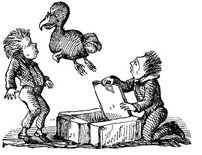
Neocon Hubris & the Battle for Ukraine
EVER THE WARMONGERS
And here we thought they’d exited the world stage, heads lowered, hats in hand. The entire lot of them seemingly had faded into the sunset.
Not so. The neoconservatives are back.
Or, more accurately, they never left. They merely blended into the background, working as assiduously as ever toward their ultimate goal: U.S. military and economic hegemony in every corner of the world.
If you thought the neocons were effectively exiled from the halls of American political power when they failed to force a successor to George W. Bush into the White House, think again. (Who remembers Sarah Palin? In 2008 an official at the neocon American Enterprise Institute said of the vice-presidential hopeful, “She’s bright and she’s a blank page. She’s going places, and it’s worth going there with her.” Hey, stop snickering!)
Palin (and her running mate, John McCain) went nowhere and is a mere historical footnote. But the neocons? They regrouped, rebranded, and resumed their nefarious activities. You see, party affiliation doesn’t matter to them as much as power and influence. You’re a Republican? Fine. You’re a Democrat? Not a problem. To the neocons, the labels are interchangeable.
Opportunistic malleability is in their DNA. Neoconservatism, in the words of its founder, ex-Trotskyite Irving Kristol, “is not a ‘movement’…[but] a persuasion, one that manifests itself over time, but erratically, and one whose meaning we clearly glimpse only in retrospect.” Neoconservatism, which began in the Democratic Party in the 1960s, eventually became associated with the Republican Party in the 1980s (its roots are in the Trotskyism of the 1930s). But it isn’t tied to the GOP.
You May Also Enjoy
Catholic monuments, Catholic buildings, and Catholics themselves will continue to be attacked but the attackers have little to fear from the law.
The McCarrick report is a historical accounting that doesn’t hold anyone accountable, and it will have no practical consequences.
His split-mindedness is present at every point, recognized in his clear distinction between “the faith of Catholics” and “my faith.”

